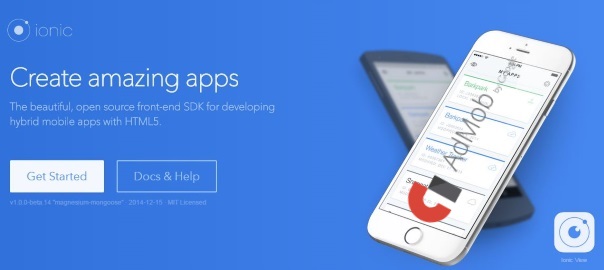
- #How to install android emulator for ionic on windows how to
- #How to install android emulator for ionic on windows for android
- #How to install android emulator for ionic on windows android
- #How to install android emulator for ionic on windows code
Import from 'app-root',Ĭonst toast = await this.toastController. We will start with importing the packages we installed before. The time has come to finally warm up our fingers by typing some code.
#How to install android emulator for ionic on windows code
Push notification code implementation Package importing Yay! Congrats! But it’s still too early to cheer.
#How to install android emulator for ionic on windows android
The Android package name needs to be the same as our widget id, in my case:.

#How to install android emulator for ionic on windows for android
The following steps for Android are almost the same as for the iOS setup: You should have your IOS application ready. We can skip all of the further steps, as they are not required for the Ionic project setup. You can see a folder structure in my project here. When it’s downloaded, paste it into a base folder of your projects.

Leave the other fields blank and click “Register app”. This step is crucial, so double check the value of id on the widget and bundle ID of your Firebase application. That should be everything in the first step of registering the application. Bundle ID has to be a same as your widget id widget element id is what we need to specify in FirebaseĪfter you get the value of id, don’t forget to provide it to your Firebase application as the bundle ID. I said before if you specified your bundle name to in Firebase, the id in your Ionic project has to be the same! You can also leave the id as you have it already in your Ionic project but then you need to change it in Firebase. The Id attribute holds the unique identifier of your application. Open your Ionic projects and navigate to “config.xml” file. Let’s say I want to have the bundle name, then I need to do the following: Now we need to provide our iOS bundle ID and this has to be the same as in your Ionic project. You should see this screen.Ĭlick on the iOS button and you’ll see this: If you don’t have a project created yet, do it now. Navigate to the Firebase page and login to a console. Looking for issues after all of the setup can be very frustrating, trust me - I am speaking from my own experience. Read slowly and make sure you get everything right. Note: The steps starting here are very important, so please be patient. I suggest you to go through iOS setup anyway so it will give you a better understanding for future projects.

To test it out you need to have an Apple Developer account, which costs around $99USD per year. Firebase setup for iOS and Androidīefore we will start all of the setup, I need to warn you that you cannot test your push notifications on iOS emulator. Packages install, done! Let’s move to the second section. This is a library for Angular and Firebase: npm install -save angularfire2 firebase Finally, let’s type: npm install -save have version of beta.14

Navigate to your project’s folder.įirst, we will install all of the required packages. Open your Ionic project in the coding editor of your choice, and open your terminal as well. So I went through all of the setups and prepared this tutorial for you. Setting up push notifications can be truly frustrating and time consuming.
#How to install android emulator for ionic on windows how to
By Filip Jerga How to get push notifications working with Ionic 4 and Firebase A full step-by-step tutorial that will get you on the right track for iOS and Android


 0 kommentar(er)
0 kommentar(er)
